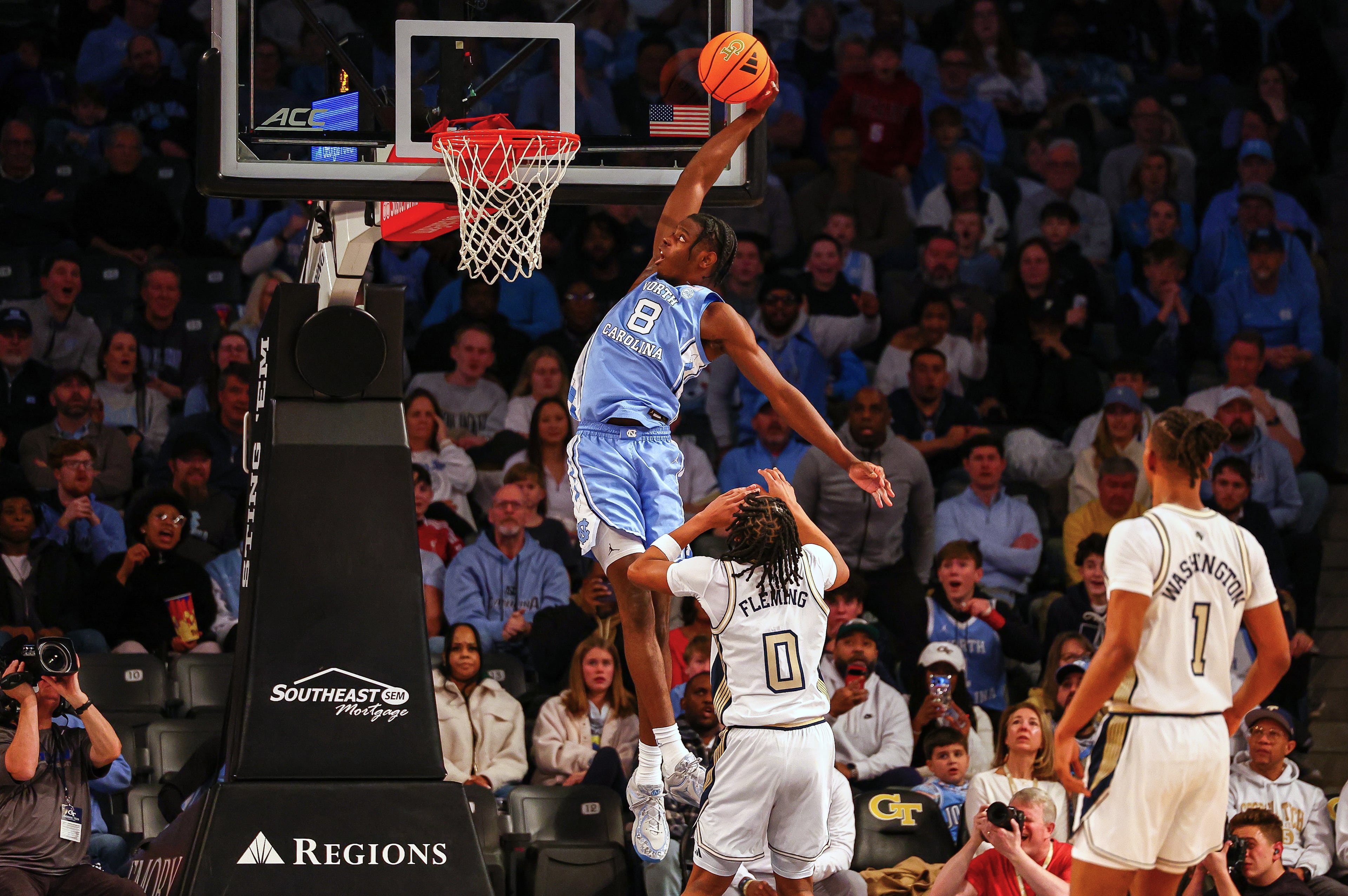Georgia Tech’s volleyball team left out of NCAA tournament

Georgia Tech’s volleyball team will have to wait at least another year to return to the NCAA tournament. The Yellow Jackets learned Sunday night that, after finishing second in the ACC, they were not included in the NCAA tournament field while three teams that tied for third — Florida State, Louisville and Notre Dame — earned at-large berths, along with conference champion Pittsburgh.
It was a disappointment for the Jackets, who finished the season winning 13 of their final 14 regular-season matches and were seeking their first NCAA berth since 2009. Instead, Tech will play in the NIVC tournament, starting Friday at home against Alabama A&M. It’s the second consecutive season that the Jackets will have played in volleyball’s version of the NIT.
A few factors likely did in the Jackets’ candidacy. While Tech had a 21-8 overall record, better than Louisville, Notre Dame and Florida State (all 19-9), the Jackets’ RPI was No. 56. Louisville was No. 25, Notre Dame No. 32 and Florida State No. 36.
According to coach Michelle Collier, the lowest RPI’s that earn one of the 32 at-large bids are usually in the mid-40s, although there are sometimes outliers.
Indeed, every power-conference team up through 46 got into the field. After that, No. 48 California (20-10) was left out and No. 50 Illinois (16-13) got in, the lowest-rated at-large team.
Beyond the ranking, Tech’s schedule that helped establish its RPI likely didn’t do it any favors, either. Tech played 18 of its 29 matches against teams ranked 100 or higher in RPI. That includes seven of the Jackets’ 11 non-conference matches, the contests over which Tech had control in scheduling. (It’s also true that non-conference scheduling can be capricious, as teams can turn out weaker than projected.)
Further, in those 11 non-conference matches, the Jackets were 0-4 in their top-100 matches.
Meanwhile, Illinois — the lowest RPI team to get in as an at-large bid — had a poorer record, but played a much more stringent non-conference schedule. Out of nine non-conference matchups, seven were against RPI top-100 teams (three against top-25 teams) and Illinois was 3-4 in those matches. Further, Illinois played only one non-conference match at home. (Tech played five of its 11 non-conference matches at O’Keefe Gymnasium.)
On top of that, the Big Ten was No. 2 in conference RPI and the ACC was fifth.
It can be argued that RPI is a flawed metric, and the basketball selection committee’s shift from RPI to the NET ranking would indicate as much. Unfortunately for Tech, it was the instrument at the volleyball selection committee’s disposal.
There is likely validity to Collier’s assertion prior to the announcement of the tournament field that, given the Jackets’ hot finish, “I don’t think there’s a team in the country that wants to play us in the first round, so I think that (the selection committee) needs to be looking at all that, for sure.” A contextual understanding of Tech’s season would also suggest that, as a team heavily dependent on a freshman and several sophomores, a slow start might have been expected.
And conference wins over top-100 teams FSU, North Carolina and Notre Dame were also indicative of the team’s fitness as a tournament team, as was the fact that Tech was the only ACC team to take conference champion Pitt – far and away the best team in the ACC – to the full five sets, and did so on the road. It’s likely that Tech could defeat a number of the 32 teams that received at-large bids.
However, for better or worse (in Tech’s case, worse), “full body of work” is a central tenet to the selection process, and that would appear to have cost the Jackets.
On social media, Tech fans were indignant that the Jackets were left out despite finishing ahead of Louisville, FSU and Notre Dame in the conference standings. It’s a reasonable argument, particularly since the Jackets swept FSU in their lone match and split with Notre Dame. However, if the volleyball process is similar to basketball, conference records and finishes are not regarded closely unless the league plays a true round robin (which the ACC does not, as teams play one match against 10 teams and home-and-homes with four), as the league records aren’t apples to apples. (To that end, Tech had a demonstrably easier league schedule than did Notre Dame, FSU and Louisville.)
Further, Notre Dame, FSU and Louisville were considerably more aggressive in non-conference scheduling and fared better, also.
Tech will likely receive a bounty of honors from the ACC. Collier touted outside hitter Julia Bergmann as a strong candidate for rookie of the year and Matti McKissock for setter of the year. Having guided the Jackets from an 11th-place projection in the preseason to second place, it would seem Collier herself makes a case as the league’s coach of the year, which would make her the third coach in Tech history to earn the honor.
With all but one of her top seven returning – five sophomores and one freshman, Bergmann – the future appears bright. But, unfortunately for Tech, it’ll have to wait.



